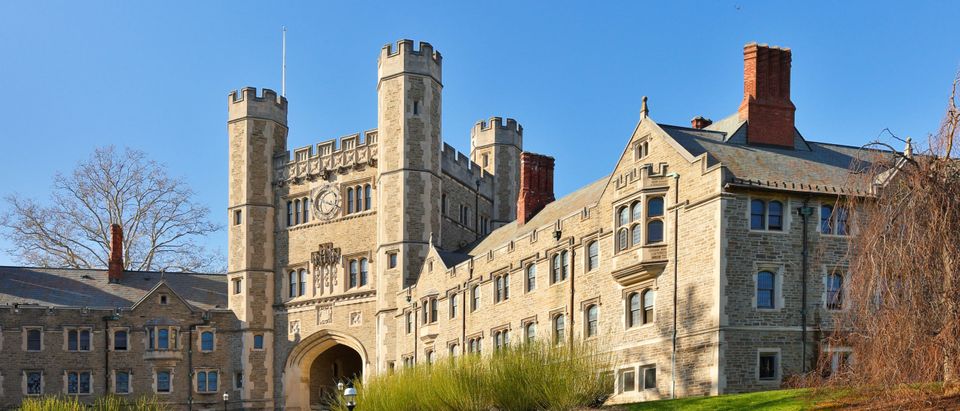In American higher education, costs keep rising while standards keep falling.
Princeton University (my alma mater) recently announced that students can major in its Classics Department without knowing how to read Greek and Latin texts. Can you imagine engineering students being exempted from calculus? Or pre-med students skipping organic chemistry?
According to the May 2021 “Princeton Alumni Weekly” (PAW), the director of Princeton’s undergraduate studies, classics professor Josh Billings, said, “[t]he breadth of offerings remains the same” while “[t]he changes ultimately give students more opportunities to major in classics.”
The PAW further explains that this decision flowed from discussions that “predate [Princeton President Christopher] Eisgruber’s call to address systemic racism at the University … but were given new urgency by this and the events around race that occurred last summer.”
What is disappointing is the assumption that minorities and disadvantaged students will be unable, or find it more difficult, to learn these ancient languages. Here’s another example of the tyranny of low expectations.
Perhaps another rationale might explain this decision: the steadily declining number of undergraduate students majoring in the humanities. Might the Princeton faculty be more concerned with self-protection and ensuring higher demand for their offerings by making the classics curriculum easier?
President Eisgruber had earlier sparked a U.S. Department of Education review based on his comments that Princeton needed to address aspects of its own structural racism. In September 2020, President Eisgruber announced steps that Princeton would take “to combat systemic racism at Princeton and beyond.”
The U.S. Department of Education promptly launched a Title VI investigation under the 1964 Civil Rights Act that bans discrimination in “any program or activity receiving federal financial assistance.” Princeton had received some $75 million in federal funding that it might have to return based on prior assurances that the university did not discriminate.
Shortly before leaving Washington, the Trump administration dropped its probe without fanfare, most likely because Princeton’s internal records and practices showed that the university’s record in handling discrimination is exemplary.
Princeton’s May 3, 2021, update on its “ongoing efforts to address systemic racism” details an extensive list of activities meant to address Eisgruber’s concerns: a professorship of indigenous studies, grants for anti-racism research, racial-action equity plans, “an external review committee to assess equity, diversity and inclusion at the Princeton Plasma Physics Laboratory,” and many more initiatives.
While some will find this list admirable in scope, others may find it excessive. Moreover, the update says nothing about the costs associated with these efforts. One Princeton Vice Provost told me that “the total would be very substantial.”
If you ever wondered why American higher education costs have been double that of health care, this laundry list of administrative activities makes clear that a main driver of such inflation has been administrative bloat, not teaching or instructional costs.
Wherever racism occurs in America, it must be stopped; if laws are violated, the violators must be promptly punished. At the same time, it’s worth remembering Sen. Tim Scott’s recent remarks that America is not a racist nation.
Many traditional standards of American higher education have been steadily declining as administrative costs keep rising. For decades, humanities doctoral candidates had to demonstrate proficiency in at least one, sometimes two, foreign languages. That requirement has been challenged as pointless. Yale English majors no longer have to study Shakespeare.
Before World War II at Oxford and Cambridge Universities doctoral degrees were the exception, not the rule. Some of the most renowned professors lacked doctorates. Many famous philosophers and historians had only their undergraduate degrees that matured into Masters Degrees without additional study if their undergraduate exams were of sufficient quality.
Postwar, there’s been a rising number of doctorates awarded in England, arguably to satisfy Americans’ desires for more academic credentials. But there are still standards: one friend spent six years at Oxford pursuing a Ph.D. in philosophy, an advanced degree that requires original work. He didn’t make it, was awarded another, lesser degree, and then entered Harvard Law School.
Now, in the U.S., we find doctorates increasingly awarded in areas such as healthy living studies, packaging studies, and bowling-management services.
The credentialing continues while the credentials stand for less. Postsecondary costs and student debt keep rising. It’s a racket that more students, parents, and taxpayers are finally beginning to question.
Mirabile dictu!
Charles Kolb served as Deputy Assistant to the President for Domestic Policy from 1990-1992 in the George H.W. Bush White House


